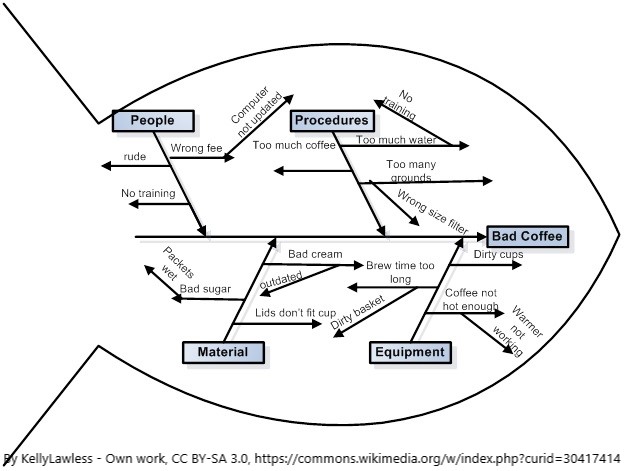One of the most natural questions is WHY? And, ‘WHY’ can actually be a great question if you are looking for a root cause with intention to fix whatever’s broken. At the same time, ‘WHY’ can be a terrible question if it’s simply a statement or complaint.
There’s a great tool called a ‘Ishikawa diagram’ or a ‘fishbone diagram.’ The basic idea is that you keep asking WHY, WHY, WHY, WHY, WHY until you truly arrive at the root cause. It’s always tempting to stop after one or two WHY questions, but unless you truly reach the root cause, the problem you are trying to fix will happen again.
That should lead to one of the most powerful questions, WHAT. WHAT needs to done to fix the root cause? I’ll warn you that most often people get lazy and don’t dig deep enough with the repeated WHY questions. Often the first few WHY questions point to related symptoms. As you ask more WHY questions, it gets deeper and often leads back to you as a leader, your priorities, investments, commitment training, change management and decisions. A great leader takes full responsibility him/herself. Don’t let shallow WHYS to let you only see the failures in others. Go deep enough to make sure you find the failures in yourself and in your own leadership. Unless you are down deep to the root cause, WHAT you fix isn’t likely to make much difference. It might feel good, and it might delay your own deep self-reflection and self-improvement.
By the way… you might be the leader at the top, or you might be the leader at the bottom. When I use the word leader, I’m talking more about values and behaviors than organizational position. At whatever level you are in the organization, you are a leader. Own it. And become the amazing leader that reflects your unlimited potential.
There are lots of things to think about in these ideas. But, the most important WHAT question is… WHAT can I learn from this? When you first wonder… WHY is this happening? Make sure you pair it with the powerful question asking WHAT can I learn?
The opportunity to learn, may be more important than the opportunity to earn.
